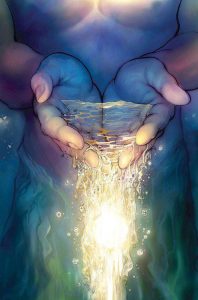 Our Moving into Meditation class focused on Desire: the mind state: Want/Don’t Want: The Unquenchable Thirst described in the fourth chapter of Toni Bernhard‘s book: How to Wake Up: A Buddhist Inspired Guide to Navigating Joy and Sorrow. We drew inspiration from Jack Kornfield’s book, No Time Like the Present: Finding Freedom, Love and Joy Right Where You Are. Jack invites us to trust that we are part of life’s ever unfolding mystery. Poet Jane Hirshfield ‘s tender and wry words describe the creaturely ties that bind our wounds.
Our Moving into Meditation class focused on Desire: the mind state: Want/Don’t Want: The Unquenchable Thirst described in the fourth chapter of Toni Bernhard‘s book: How to Wake Up: A Buddhist Inspired Guide to Navigating Joy and Sorrow. We drew inspiration from Jack Kornfield’s book, No Time Like the Present: Finding Freedom, Love and Joy Right Where You Are. Jack invites us to trust that we are part of life’s ever unfolding mystery. Poet Jane Hirshfield ‘s tender and wry words describe the creaturely ties that bind our wounds.
Guided Relaxation
 Welcome and relax into what is now . . . sense how your body breathes . . . 15,000 breaths a day . . . sense how your heart beats . . . 90,000 times a day . . . you can trust your skin to hold you . . . your bones to carry you . . . your organs to support you . . . you can relax . . . let it be . . . let it come . . . let it go . . . this it . . . the mystery of life . . . its seasons coming and going . . . the earth . . . the plants . . . the trees . . . the waters ebbing . . . flowing . . . the turning of time and seasons . . . the earth in abiding motion . . . spinning 1,000 miles an hour orbiting the Sun . . . we do not feel the motion . . . yet we trust its speeds are constant . . . We can sense our part in something vast, perennial life unfolding . . .
Welcome and relax into what is now . . . sense how your body breathes . . . 15,000 breaths a day . . . sense how your heart beats . . . 90,000 times a day . . . you can trust your skin to hold you . . . your bones to carry you . . . your organs to support you . . . you can relax . . . let it be . . . let it come . . . let it go . . . this it . . . the mystery of life . . . its seasons coming and going . . . the earth . . . the plants . . . the trees . . . the waters ebbing . . . flowing . . . the turning of time and seasons . . . the earth in abiding motion . . . spinning 1,000 miles an hour orbiting the Sun . . . we do not feel the motion . . . yet we trust its speeds are constant . . . We can sense our part in something vast, perennial life unfolding . . .
Reflect on the times you’ve felt a part of it all . . . and how like a fall from grace you found yourself separate and small wanting things to be different. Toni B. describes “Wanting/Not Wanting” as a mental state in which we feel a need over which we have no control. Consider your desires . . . are they wholesome aspirations that inspire you to embrace life? Or are our thoughts telling us our happiness and peace of mind depend on getting the right thing, feelings, or experiences?
 How often have you realized that satisfying these types of desires inevitably disappoints? Our desires, like all of life, are ever changing . . . Once again, our capacity to be mindful, can help us. Try Toni B.’s “If Only” practice “ . . . to notice if we’re telling ourselves that we’d be happy and content . . . if only we could fulfill a particular desire. . . . “ Consider how often we have “If Only” thoughts. If only we could get that job we’d be satisfied. If only we didn’t feel lonely, our problems would go away. If we weren’t sick, we’d be happy. Even when our “If Only’s” come to pass they don’t bring lasting satisfaction. Our happiness quickly gives way to new Wants/Don’t Wants.
How often have you realized that satisfying these types of desires inevitably disappoints? Our desires, like all of life, are ever changing . . . Once again, our capacity to be mindful, can help us. Try Toni B.’s “If Only” practice “ . . . to notice if we’re telling ourselves that we’d be happy and content . . . if only we could fulfill a particular desire. . . . “ Consider how often we have “If Only” thoughts. If only we could get that job we’d be satisfied. If only we didn’t feel lonely, our problems would go away. If we weren’t sick, we’d be happy. Even when our “If Only’s” come to pass they don’t bring lasting satisfaction. Our happiness quickly gives way to new Wants/Don’t Wants.
As we practice mindfulness we come to recognize the mind is “soft and pliant”; it changes. Change happens when we respond to our desires instead of being driven by them. We can work with our minds to free ourselves. Toni writes there is a profound happiness that’s not dependent on getting what we want or getting rid of what we don’t want. This lasting happiness arises when we’re able to live each moment fully as it is without needing it to be different.
 We can begin by separating the presence of desire – in our minds and bodies – from the object of desire. Like the metaphor of the moth and the flame. The moth only sees the flame. Everything else is dark. Seeing only the flame, the moth isn’t aware of its own compulsion to fly into it even if the consequences are fatal. Our flight toward our desire may not be fatal but it may dim the light in our lives. Without the light of mindfulness it is difficult to see that being enamored by the object of our desire may be keeping us from seeing the presence of desire in our own minds.
We can begin by separating the presence of desire – in our minds and bodies – from the object of desire. Like the metaphor of the moth and the flame. The moth only sees the flame. Everything else is dark. Seeing only the flame, the moth isn’t aware of its own compulsion to fly into it even if the consequences are fatal. Our flight toward our desire may not be fatal but it may dim the light in our lives. Without the light of mindfulness it is difficult to see that being enamored by the object of our desire may be keeping us from seeing the presence of desire in our own minds.
Toni suggests ways to work skillfully with our desire. We can recognize, label and investigate our wanting/not wanting and we can let it be.
Let it be . . . don’t blame yourself for its presence. Desires arise uninvited in everyone’s mind. . . . Maintaining a nonjudgmental attitude helps because we’re coaxing desire into the light of mindful awareness. . .. If it disappears behind judgment and aversion, it’s likely to grow stronger. . . .
As our investigation deepens insights reveal how we spin stressful stories about our Wants/Don’t Wants. We don’t get what we want or we get what we don’t want because there is something wrong with us. We our deficient of unworthy in some way. Toni asserts:
 . . . we are not inherently deficient or unworthy. These types of feelings are the result of conditioning. . . . there’s no better way to “recondition” a self-critical mind than to question the validity of stressful stories it spins. . . . If we ask ourselves, “Am I sure this thought is true?” we’ll realize that we’ve been feeding desire with a story that may reflect our fears and the feeling that we’re not good enough but is unlikely to be true. .
. . . we are not inherently deficient or unworthy. These types of feelings are the result of conditioning. . . . there’s no better way to “recondition” a self-critical mind than to question the validity of stressful stories it spins. . . . If we ask ourselves, “Am I sure this thought is true?” we’ll realize that we’ve been feeding desire with a story that may reflect our fears and the feeling that we’re not good enough but is unlikely to be true. .
. . . . . the suffering is in the stories. . .
Reflect on those times you were able to just “let it be.” When we “let it be” we can extend compassion to whatever suffering the desire is causing. This is a moment of waking up! This is a way of unraveling the conditioning that ensnares us. We can take a deep breath and be patient. Toni observes that patience is an act of compassion toward ourselves . . .
In her poetry collection, Of Gravity and Angels, Poet Jane H. writes poignantly about What Binds Us:
There are names for what binds us:
strong forces, weak forces.
Look around, you can see them:
the skin that forms in a half-empty cup,
nails rusting into the places they join,
joints dovetailed on their own weight.
The way things stay so solidly
wherever they’ve been set down—
and gravity, scientists say, is weak.
And see how the flesh grows back
across a wound, with a great vehemence,
more strong
than the simple, untested surface before.
There’s a name for it on horses,
when it comes back darker and raised: proud flesh,
 as all flesh,
as all flesh,
is proud of its wounds, wears them
as honors given out after battle,
small triumphs pinned to the chest—
And when two people have loved each other
see how it is like a
scar between their bodies,
stronger, darker, and proud;
how the black cord makes of them a single fabric
that nothing can tear or mend.
We can weave this fabric that nothing can tear or mend with our compassion, love and patience.
